Posted on Sep 26, 2019
20 Writing Tips to Improve Your Craft
About the author
Reedsy's editorial team is a diverse group of industry experts devoted to helping authors write and publish beautiful books.
More about the Reedsy Editorial Team →Savannah Cordova
Savannah is a senior editor with Reedsy and a published writer whose work has appeared on Slate, Kirkus, and BookTrib. Her short fiction has appeared in the Owl Canyon Press anthology, "No Bars and a Dead Battery".
View profile →“The pen is mightier than the sword.” Writer Edgar Bulwer-Lytton made this keen observation nearly 200 years ago, but it remains just as true today. Writing is one of the most powerful forms in existence, and a simple story can change countless lives — which is why so many of us choose to be writers in the first place.
But sometimes it can be difficult to find the right words, to tell the story the way you want, or to start writing in the first place. That’s why we’ve compiled these 20 essential writing tips for writers like you: artists who want to hone their craft to perfection, so they can tell their stories effectively to the world.
Some of these tips are narrative-related, while others are more about the mentality and setting you need in order to write. But all have one crucial thing in common: if you take them to heart, they’ll help you improve your craft — and maybe even pen the book of your dreams.
If you prefer your tips in watchable form, check out this video on great writing tips that no one else will tell you.
1. Even pantsers need to plan
Let’s begin with an age-old question: are you a plotter or a pantser?
If you’ve never heard these terms before, allow us to explain. Pantsers are writers who “fly by the seat of their pants,” i.e. start writing without preparing too much and simply trust that everything will work out. At the other end of the spectrum are plotters, who plan and outline extensively before they begin to write.
Which is the better way forward? Well, it’s different for everyone — what works for you may not necessarily work for another writer you know.
However, experience has taught us that a little bit of planning goes a long way. That’s why we always advise some form of preparation, even if it’s just a few nuggets of your plot, before you dive into writing. So create an outline today, if you haven't already!
2. Keep your outline in mind
Once you’ve prepared that outline, it’s important to actually use it. This may seem obvious, but it's seemingly one of the hardest-to-remember writing tips out there!
Many writers find themselves led astray by subplots and secondary characters, wandering into rambling chapters that don’t really go anywhere. Then when they try to get back to the main plot, they find they’re already too far gone.
Keeping your outline in mind at all times will help you avoid these disastrous detours. Even if you stray a little, you should be able to look at your outline and articulate exactly how you’ll get back to what you planned.
This is especially crucial late in the writing process, when it can be hard to remember your original vision — so if you have doubts about your ability to remember your outline, definitely write it down.
3. Introduce conflict early
Of all the core elements in your story, conflict is perhaps the most important to emphasize. Conflict lies at the heart of every good narrative, so make sure readers know what your conflict is within the first few chapters!
The best way to do this is through an early inciting incident to kick off your story, wherein the main character has a revelation and/or becomes involved in something big. For example, in The Hunger Games, the inciting incident is Katniss volunteering for the Games — which kicks off her personal and political conflict with the Capitol.
Finally, remember that there are many different types of conflict. So if you have no idea what your conflict, it’s probably just unconventional. For instance, your conflict might be one that unfolds within your narrator (character vs. self), or against some larger force (like character vs. technology). Once you do figure it out, try to introduce it early!
4. Control the pacing
Nothing ruins a good book like poor pacing. So make sure you control the pacing in your story, lest readers lose interest and put down your book in frustration!
In order to combat slow pacing, you’ll need to increase the tempo by:
A) Cutting down lengthy sentences and descriptions, and
B) Increasing action and dialogue.
The first strategy works for one simple reason: it gets rid of filler and fluff. In extreme cases, you may have to cut a great deal of exposition in order to get to the beating heart of your story. (See writing tip #18 to help you with this.)
As for the latter, it might seem like adding more content is counterintuitive to a quicker pace. But because action and dialogue move the story forward in a concrete manner, you can always rely on them to improve slow pacing.
5. Fine-tune your dialogue
Speaking of dialogue, it's pretty critical to most stories, both in terms of plot and drawing in readers. Indeed, a conversation between characters is usually much more impactful than a narrator relaying similar information.
But dialogue loses its impact if the conversation goes on for too long — so for better, sharper dialogue, be concise. Say you’re writing a story in which two characters have an argument. You might be tempted to go on for paragraphs to convey emotion, tension, and meaning, but all this can fit into just a few sentences. Like so:
“Nice of you to show up. What were you doing, if not getting groceries?”
“Thanks for the warm reception. I had a meeting. Kind of an important one.”
For more dialogue-specific writing tips, check out this post — or the video below!
6. Show, don’t tell
In a similar vein, while you may have already heard this advice, it bears repeating: show, don’t tell as often as possible. For those who aren’t really sure what that means, it’s easiest for us to, well, show you! Here’s a passage from Sally Rooney’s Normal People that exemplifies this rule:
He wakes up just after eight. It’s bright outside the window and the carriage is warming up, a heavy warmth of breath and sweat. Minor train stations with unreadable names flash past… Connell rubs his left eye with his knuckles and sits up. Elaine is reading the one novel she has brought with her on the journey, a novel with a glossy cover and the words "Now a Major Motion Picture" along the top.
As you can see, it’s pretty hard to completely eliminate telling from your prose — in fact, the first sentence in this passage could qualify as “telling.” But the rest is “showing,” as it paints an evocative picture of the scene: the bright, warm carriage in the train that's rushing past other stations, the girl reading the glossy novel in the opposite seat.
If you can use all five senses to convey the scene, all the better. Tell us not just what the central character sees, but also what they hear, smell, taste, and feel in order to truly immerse the reader in the scene.
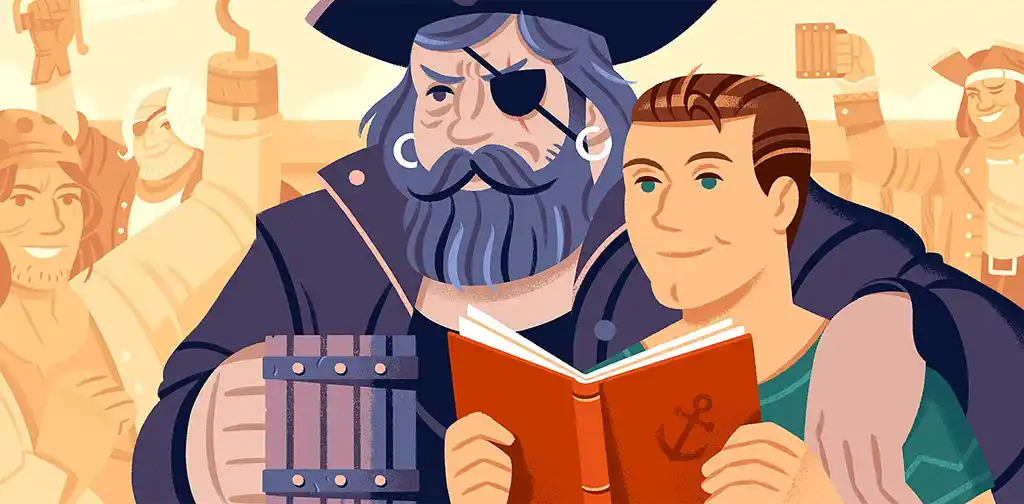
FREE COURSE
Show, Don't Tell
Master the golden rule of writing in 10 five-minute lessons.
7. But don’t reveal TOO much
While you want your scene-by-scene descriptions to be as “showy” as possible, don’t reveal too much to readers about your plot and characters. This is the idea behind Hemingway's “Iceberg Theory,” which posits that you should only provide readers with “the tip of the iceberg” — the most essential part of the story.
Many writers create elaborate histories for their characters, or have long-reaching plans for them beyond their current works. But readers only need to know the “here and now,” so to speak. Giving them too much information will overwhelm them, and likely cause them to put your book down in favor of something simpler.
So while you might include a bit of backstory or foreshadowing every so often, it’s best to keep most of this info to yourself. This also works on another level, in that you can reveal tantalizing drips of information as the story progresses, which will pique readers’ interest rather than lose it. (Two writing tips for the price of one!)
8. Consider your themes
On a related note, the underwater part of the “Hemingway iceberg” not only consists of backstory, but also important themes. This is another aspect to contemplate during the writing process: what are you trying to say about society and/or the human condition? And how can you convey those themes in a subtle yet effective way?
Common literary themes include love, loss, and the importance of doing the right thing. Your themes will depend on your genre and subject material, but they may also relate closely to your personal beliefs and experiences. Try to embrace this, as writing what you know is a great way to infuse your story with genuine emotion.
9. Be careful with POV
Your narrator is your reader’s gateway into the story, so be careful with point of view. Don’t make your narrator’s voice too specific, as they need to speak in an accessible and relatable way for readers — and a non-stereotypical way if they happen to speak in a certain dialect. (For help with this, you might consider getting a sensitivity reader.)
Also remember that, while omniscient narration is the most flexible way to tell your story, it also requires the most discipline as an author. An omniscient narrator can easily move too rapidly among storylines, causing mental whiplash for readers.
To avoid this, remember our tip about having your outline in mind at all times! That way, even if you have an omniscient narrator, they shouldn’t get too far off track.
10. Write as often as you can
Now we’re getting into the more process-based writing tips. Write as much as possible is one of those tips you’re surely tired of hearing, but the reason it’s so common is because it works!
The only way you’re ever going to finish writing a book is by sitting down and writing it, so work on your story as often as you can. Write whenever and wherever you have a bit of downtime — on the bus, in a long line at the grocery store, waiting for your laundry, etc. It might feel strange to write on your phone rather than on a laptop at your desk, but you’ll get accustomed if you do it often enough.
If you can't figure out what to write, we have some awesome writing prompts to give you creative inspiration, writing exercises to flex those writing muscles, and even writing scholarships (if you're a student) to help you out! You can also check out these great opening lines, our guide to getting started with creative writing or watch the video below to inspire you.
11. Ask yourself questions
One way to ensure you’re doing your best, most creative writing is to question yourself constantly. It’s easy to get complacent with your writing, even if you’re technically meeting your word count goals. But if you’re always challenging yourself, you’ll see every bit of potential in your story and fulfill it as you progress.
A few good questions to ask yourself might be:
- Have I given my characters realistic goals and motivations that manifest throughout the story?
- How does each scene contribute to either the plot or our understanding of the characters?
- Is there a big reveal, and if so, am I building toward it sufficiently?
- Does the perspective/narration style feel true to the story I’m telling?
12. Write now, edit later
That said, don’t challenge yourself so much you become too paralyzed to write. When in doubt, just skip over it, or write a crappy version of it for now. Write now, edit later is the approach of countless authors, and if it works for them, it can work for you too!
We won’t really touch on editing here, since this is a list of writing tips, not editing tips. But if you’re interested in the “later” part, you can check out this guide on how to edit a book. And remember: you don't have to go it alone — the Internet is chock full of writing groups willing to give you constructive criticism, not to mention great tools to edit and get the job done.
13. Read your work out loud
Many of the best writers' and editors' writing tips include reading aloud what you write in order to check it for inconsistencies and awkward phrasing. This tactic particularly helps weed out long, unwieldy sentences, and it's a godsend when you're working out how to write speech that sounds true to your characters..
For bonus points, you might even stage a reading with a group of friends (or fellow writers) where each person reads the dialogue of a different character. This will give your writing more “distance” and help you see its flaws more easily. If you do stage a reading, remember to take notes, so you can remember what to fix afterward!
14. Make it short and sweet
As Polonius said, brevity is the soul of wit, so keep your writing as short and sweet as you can. This will both entice readers and help you avoid flowery prose, which tends to be a dealbreaker for readers and agents alike.
Of course, if you’re writing literary fiction, you do want your writing to sound intelligent. How can you do this without going on for paragraphs at a time? The answer is by making strong word choices, especially when it comes to verbs. Don’t dilute your story with adverb-y sentences — get down to business and tell us what the characters are doing.
15. Get rid of distractions
Yes, this is probably one of the hardest writing tips to follow — especially for those of us who enjoy working from noisy coffee shops and taking frequent Netflix breaks. But the more you eliminate distractions, the better your writing will become. Here are some ideas on how to enter deep focus mode:
- Write on a computer with no WiFi
- Use the Pomodoro technique
- Set your phone to airplane mode or put it in a different room
- Work in a quiet space, like your local library
- Avoid working alongside friends, unless they really do increase your accountability (but be honest with yourself about this!)
16. Work through crises of confidence
In every writer’s life, there comes a point where they second-guess their entire endeavor. This will no doubt happen to you, too — maybe you’ll notice a major plot hole halfway through, a theme you have no idea how to incorporate, or you'll simply hit a creative wall.
Fear not: every writer who’s ever completed a book has gotten through this. But how can you work through such writerly crises without bashing your head against the wall?
If you ask us, the best solution is to return to your early notes and original outline. Look back to see if there’s anything there that can help you — you may have forgotten about some critical component, or it may help you see things in a new light.
And if that doesn’t work, you might just need some time away from this particular project. Take a break for a day or two, then come back to it with fresh eyes. But whatever you do, don’t give up! Remember, every writer’s been through this same thing. Think of it as your initiation, and refuse to let it break you.
17. Listen to feedback
Now for another one of those writing tips that we all struggle with. Throughout the process of writing, and definitely after you’re finished, you should share your work with other people: your friends, family, writers’ groups (both in person and on the Internet), and your editor(s).
Accepting and actioning critical feedback is one of the most difficult parts of being a writer. Yet it’s also one of the most important skills to have. Because the feedback you receive from friends and second readers is the only window you have into other people’s views — until you publish and it's too late.
So try not to view criticism as harsh, but as helpful. It might just save you from literary infamy later! On that note…
18. Kill your darlings
Sometimes you’ll pen a passage that’s so beautiful, so nuanced, so masterfully constructed that you want to frame it — but it doesn’t really contribute anything to the larger work. It’s a distraction, and you know in your heart that your book would be better off without it.
What to do now? You probably know the answer, even if you don’t want to admit it: you have to kill your darlings. This most often refers to removing an irrelevant or otherwise distracting passage, but it may also be your title, an element of your narration, or even an entire character.
In any case, if it doesn’t add to the story, consider dropping it. Of all our writing tips, this one is perhaps the most important for writers of short stories and flash fiction, since you don’t have any room to waste! Remember, you can always save it to re-use later.
19. Just keep writing
How do prolific, successful authors manage to turn out so many books? Basically, by keeping calm and carrying on. Stephen King writes 2,000 words every single day, even on holidays. Jane Austen wrote each day just after breakfast without fail. Kafka wrote in the wee hours of the morning, barely sleeping as a result.
Now, Jane Austen never had a smartphone distracting her, so that was kind of an unfair advantage. But you do still need to at least attempt a similar lifestyle, and keep writing with as much consistency and focus as possible!
This is one of the best writing tips we can give any author, fiction or non-fiction, short-form or long. Remember that it’s a marathon, not a sprint, and keep your head down until you hit that final blessed page.
20. Keep publishing in mind
Last but certainly not least on this list of writing tips, we’ll cover the potential of publishing your book once it’s finally finished. Though it's the final step in the process, thinking about it as you write can really motivate you! Not to mention it's good to have some idea of your plan when you cross that finish line.
For example, if you go the traditional publishing route, you should consider how you might pitch your book to agents. What makes your story unique, and why would they want to represent it? If you start writing with the aim to publish, you can consciously highlight these elements in the story.
On the other hand, if you’re thinking about self-publishing, the adventure truly does begin once you’ve finished the manuscript! After a round or two of editing and getting a book cover, you should be set to put your book up on Amazon and start selling.
There are pros and cons to both these sides. Luckily, if you’ve gotten to this point, the hard part is over; you’ve managed to write the book of your dreams, and now what you do with it is up to you!
And if you haven't quite gotten there yet, know that it's never too late. Writing is a lifelong challenge, but it's also one of the most rewarding things you can pursue. So go forth and tell the story you've always wanted to tell — we believe in you. ✍
Did we miss anything? Tell us your best writing tips in the comments below!






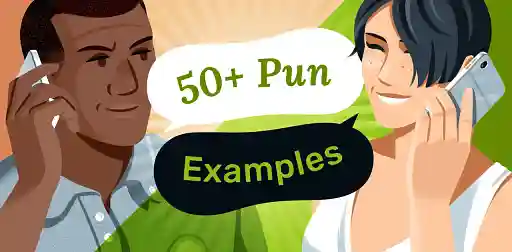
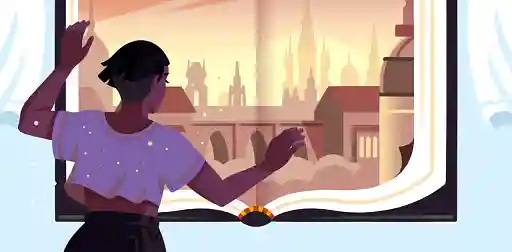
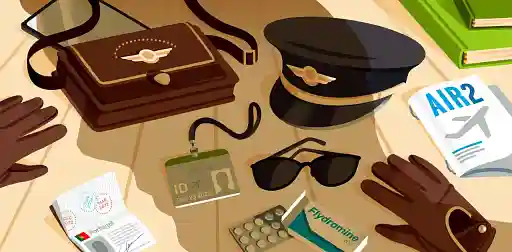
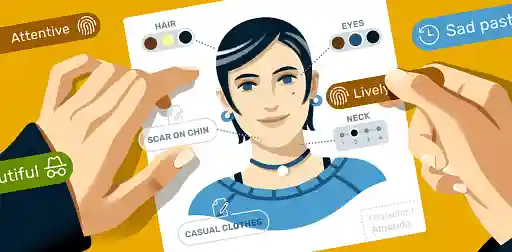
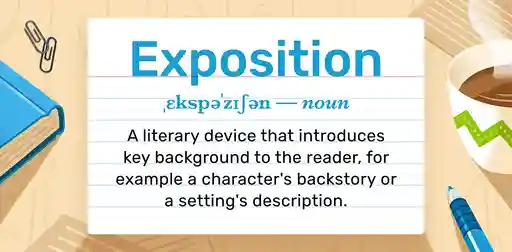
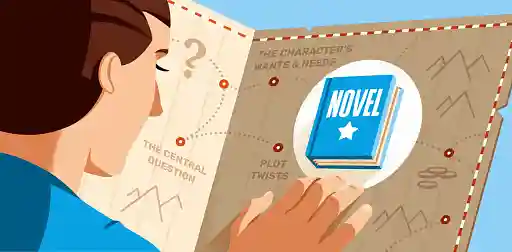


3 responses
Kalyan Panja says:
03/08/2019 – 07:19
Thanks for sharing this inspiring article which can help many to decide on the choices they make to write better and engaging articles.
Lost-Identification says:
13/08/2019 – 12:16
Do you have any recommendations for a book to help improve writing? I've been reading books like, "The Anatomy of Story" by John Truby, "Dialogue: The art of verbal action for the page, stage, and screen" by Robert Mckee, and just reading a wide genre of books.
↪️ Phil Slattery replied:
16/10/2019 – 04:32
Read The Elements of Style by Strunk and White. It has been a Bible for some great writers since the 1930's. It's updated periodically. It is short, concise, and clear; exactly what writing should be. It helped me immensely. A very concise guide that helped me immensely with punctuation is Webster"s New World Guide to Punctuation. Wonderfully concise and clear work. This won't cover every debatable nuance of punctuation, but it will cover everything you need to write well.